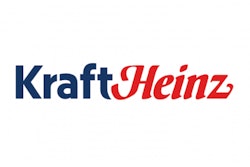
The Plant Based Foods Association (PBFA) announced its first-ever farm bill platform, in the form of a letter sent to leadership and members of the House and Senate Agriculture Committees.
The letter stressed how the popularity of plant-based foods is outpacing traditional grocery, with sales of plant-based foods increasing 8.1 percent last year, and the need for agricultural policies to support this growing market.
“Given the growing consumer interest in plant-based alternatives to meat and dairy products, PBFA strongly encourages the Committee to consider agricultural policies to promote a more competitive marketplace, said Michele Simon, PBFA’s executive director. “For too long, the status quo has given the conventional meat and dairy sectors an unfair economic advantage; it’s time to level the playing field,” she added.
In the letter, PBFA recommends that the 2018 farm bill include the following provisions:
- Support for specialty crops: Many specialty crops are used as inputs to foods made by PBFA members, chief among them being almonds, chickpeas and other pulses, coconut, flax, hemp, oats, and soybeans.
- Research on plant protein: Crop plants such as lentils, sorghum, chickpeas, fava beans, lupin, rice, oats, and water lentils should be explored for their protein content, as well as more conventional inputs such as wheat, soy, and pea protein.
- Nutrients of concern sources: PBFA supports the addition of references to “plant-based foods that are major sources of Nutrients of Concern” in 7 USC Section 3157 under “competitive special and facilities research grants” to include dry beans, dry peas, lentils and chickpeas.
- Removing anti-competitive policies: PBFA supports reforms of subsidy programs that would bridge the large competitive gap between commodities and specialty crops.
PBFA also urges the Committee not to include any provision (such as the language contained in the “Dairy Pride Act”) to limit the use of descriptive terms such as milk, cheese, meat, or egg in food names that are not deceptive or misleading.
The letter also stressed how the commodity check-off programs that support the beef, egg, and dairy industries place the plant-based alternative industry at a competitive disadvantage. PBFA supports inclusion of provisions creating transparency and accountability, as well as giving farmers and ranchers the freedom not to participate in USDA check-off programs.
Support for Organic Crops: PBFA supports the inclusion of the provisions the Homegrown Organic Act of 2017, which would make modest changes to existing voluntary USDA conservation programs to assist producers who want to transition to organic.
You can read the entire letter here.






















